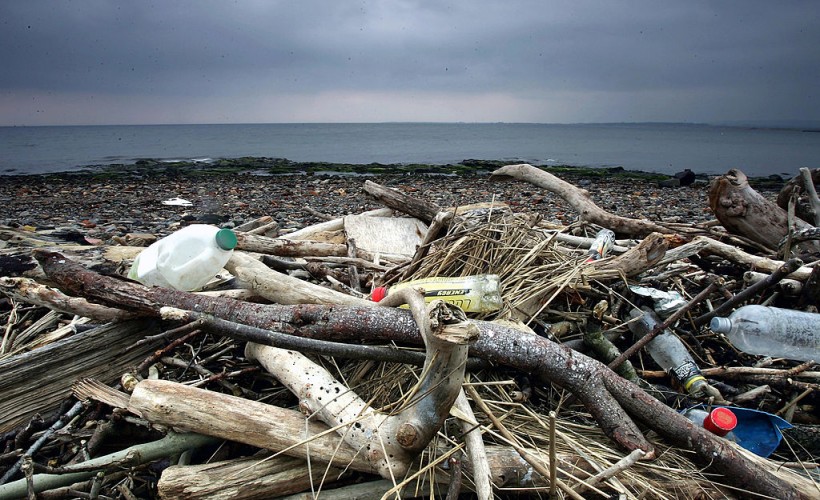A popular substitute for single-use plastic straws, paper straws may have a harmful secret, according to a Belgian researcher, the first of its type in Europe. The study, the first of its sort in Europe, raises the possibility that the eco-friendly materials may actually be concealing a hazardous flaw.

(Photo: Christopher Furlong/Getty Images)
Tires, plastic bottles, and general rubbish washed up by the sea litter the beaches in Prestwick, Scotland, 22 March 2005.
Not so Eco-Friendly
39 straw brands, including poly- and perfluoroalkyl substances (PFAS), were discovered to contain long-lasting and possibly harmful compounds, according to research by Dr. Thimo Groffen of the University of Antwerp.
These synthetic materials are noted for being heat, water, and stain-resistant and are utilized in items like outdoor clothing and non-stick cookware. According to the research, these straws endanger both people and the environment.
According to the study, PFAS was present in almost all of the examined straws, with paper and bamboo varieties having the worst contamination.
These "forever chemicals" have an almost indestructible shelf life and can linger in the environment for a very long time. The consequences might be disastrous since they could enter the food chain and endanger both people's and animals' health.
Read Also: Amazon Singapore is Selling a Portable Straw With Filter For Your Drinking Needs
Hidden Hazards
The study emphasizes the detrimental links between PFAS and a number of diseases, including cancer, thyroid dysfunction, decreased birth weight, decreased immunization response, and higher cholesterol levels.
Although PFAS concentrations in straws were very modest, their propensity to remain in the human body makes their cumulative effect over time worrisome.
According to research that looked at straws made of different materials, 69% of the brands examined had residues of 18 different PFAS chemicals.
The main offenders were paper straws, with bamboo straws being the most popular. The straws came from a variety of places, including stores, marketplaces, and fast-food restaurants. The results demonstrate the necessity of safer straw production.
'Ultra-short chain' PFAS like trifluoroacetic acid (TFA) and trifluoromethanesulfonic acid (TFMS) were discovered in research, along with perfluorooctanoic acid (PFOA), which has been prohibited internationally since 2020. Due to their high water solubility and capacity to build in the human body over time, PFAS pose a possible health concern and can leak into drinks.
Making Things Right
Researchers advise people to prefer stainless steel straws over possibly dangerous plastic straws since they are a safer option. They also think of forgoing straws entirely.
The study's findings, which demonstrate that the presence of PFAS in these 'green' straws contradicts their claimed eco-friendliness, highlight the irony of plant-based straws, which are frequently promoted as more sustainable and eco-friendly.
This highlights the need for consumers to make responsible decisions.
Related Article: England Is Banning the Use of Disposable Plastic Plates, Utensils









